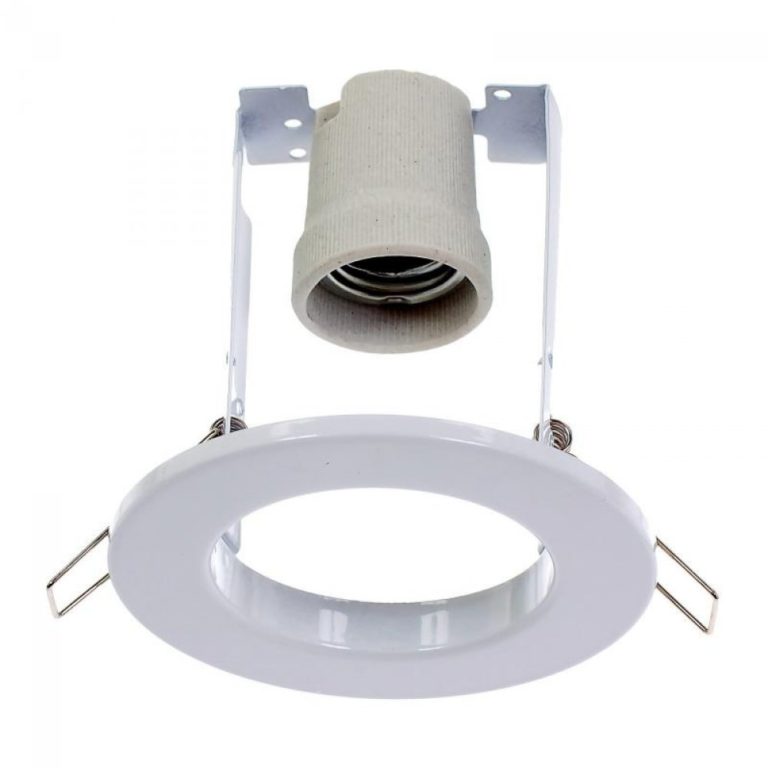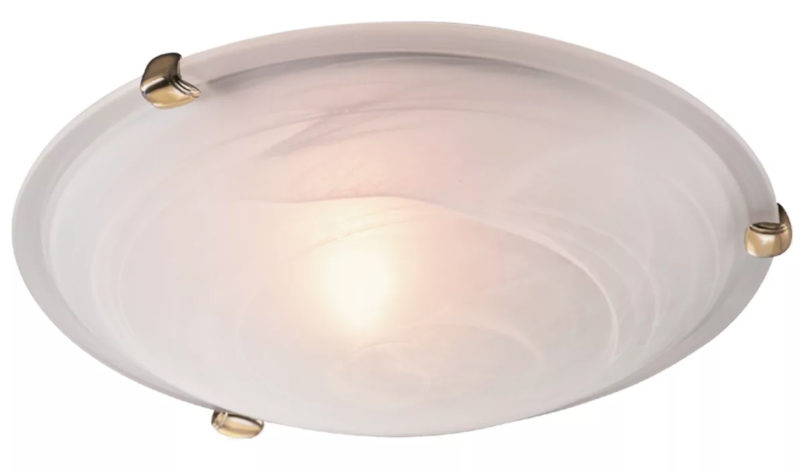How to change a plafond yourself
Surely every homeowner has had the question of how to remove the plafond from the lamp or chandelier. You have to take it off during general cleaning to clean off the layer of dust, rinse it out to give the room more light. Also, when you need to replace a burned-out light bulb. - sometimes it's impossible to get to it without removing the light. There are also pleasant moments - the purchase of a new chandelier, moving to a new home.
There are many different models of chandeliers and lamps, respectively, there are different types of lamps and options for fixing. Consider the most common types of installations and ways to remove these fragile products.
Basic rules for removing plafonds
It is important to remember that the plafond is one of the parts of the electrical appliance. Therefore, the rules for working with them should be appropriate.
- Prepare all the necessary tools, materials and means for the dismantling - a screwdriver with a current indicator, pliers, electrical tape, gloves, stepladder (chair, table).
- Check the luminaire for integrity, reliability of its mounting, damage, cracks, etc.
- Before you start dismantling, you must disconnect the power supply. It is not enough to turn off a single light fixture, you must completely disconnect the power at the entrance panel.
- Wait until all parts of the chandelier or lamp have cooled down completely.
- Check with a switch to make sure there is no voltage in the mains.
- Use a stepladder to access the ceiling fixtures. In the extreme case - a rigid stable table. Avoid stacked structures - a chair on a table, a stool on a chair, etc.
- Keep your hands absolutely dry when working with electric appliances.
- Keep all tools dry and their handles insulated.
- Washing the product must only be put back in place when it is completely dry.
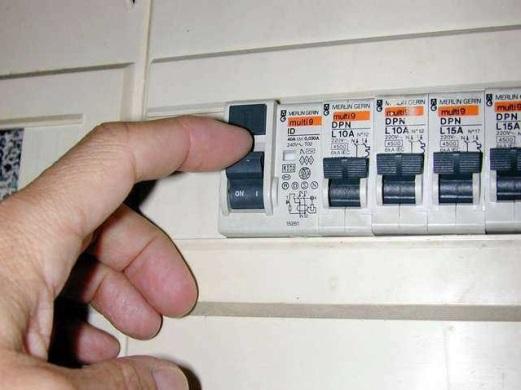
When not to remove electrical appliance fasteners
In many homes, it has become prestigious to mount a variety of suspended or stretch ceiling structures. Light fixtures on such coverings are mounted using special disposable "butterfly" type fixings. They can last a long time, but on the condition that they are not detached from the ceiling.
To disconnect such a clamp can only be breaking its design. And so the second time you attach it to the ceiling is no longer possible, you will have to buy a new one. So it is better not to take off disposable fixture without a need - it will withstand one replacement of fixtures.
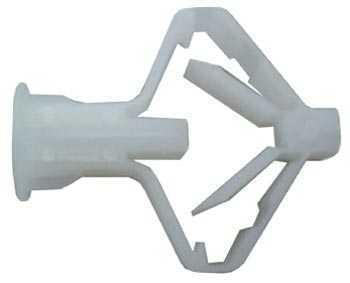
Types of luminaires and ways to remove them
In order to properly dismantle and change the plafond without damaging it in this case, you need to know in what way it is attached to the lighting fixture.
The most commonly used methods of fastening are as follows:
- screws;
- on bolts;
- on spring plates, tendrils;
- on a plastic ring.
Screwed plates
Screw models at the base have external or internal threads, through which they are screwed on top or inside the body with the lamp holder. Dismantle them in reverse order - with light pressure simply unscrew the screw plafond by thread.
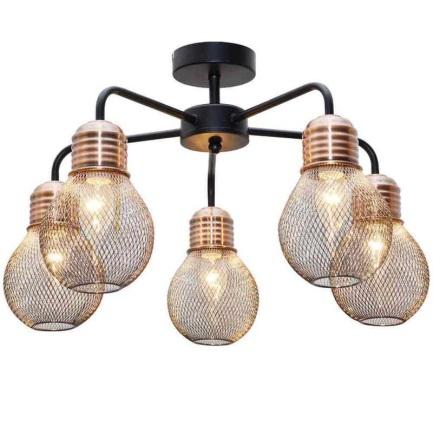
You should not screw the plafond too tight, otherwise it will be difficult to unscrew it later. Threaded connections in such cases are tightly pressed together, and when unscrewing the product can be destroyed.
Screwed closed samples are often installed in bathrooms, showers and baths - where there is high humidity. They are usually round, screwed into the body of the lamp and cover the socket with a bulb, ensuring their sealing against moisture. They can be easily removed without any tools - simply by hand effort unscrew them from the housing.
Bolt-on mounting
These lamps have a smooth base that is inserted into the socket housing. They are fixed by decorative bolts - they are screwed through the casing cage and rest against the base of the plafond. To remove, operate in reverse order - the bolts must be unscrewed in turn, supporting the plafond with your hand, then remove it from the casing cage.
Bolts should be screwed in carefully and very carefully, so as not to overstress the fragile material of the product, which can crack.
Lights on spring plates and tendrils
In older models of lamps is common system of fixing lampshades of two, mounted under the cartridge, spring plates. They press and fix the cap in the housing seat. To remove it, unscrew the bulb and the plates pressed to the socket, and the plafond is easily removed.
In ceiling models, plafonds are often mounted on clips in the form of springy tendrils. This design is considered the easiest to dismantle - simply squeeze the tendrils and the cap is immediately released. You just need to hold it in time so as not to drop it.
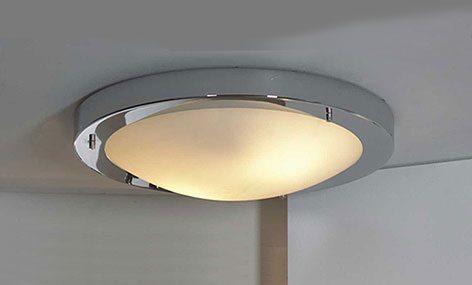
Mounting on a plastic ring
Most often in modern pendant models, the plafond is attached to the body of chandeliers and lamps with a ring of plastic. This is essentially a wide plastic nut that is screwed onto the outer thread of the socket. This nut and the plafond is pressed to the horn of the chandelier.
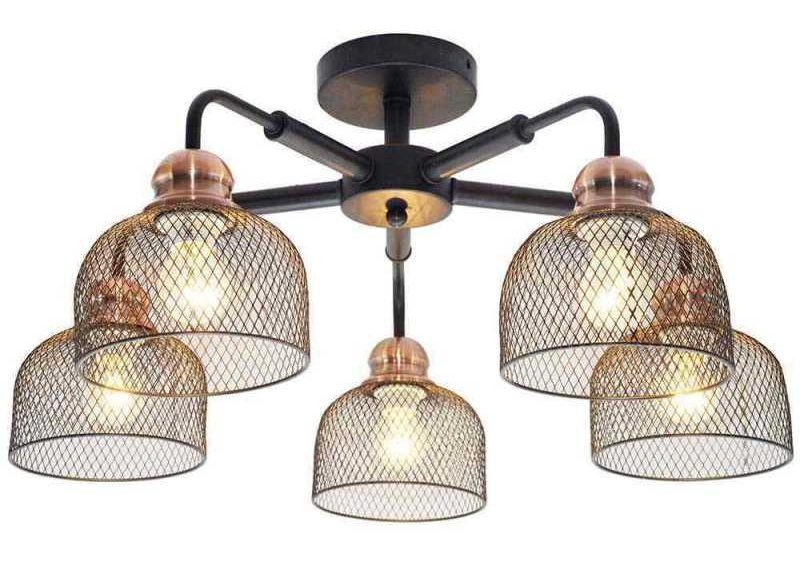
To disassemble such a plafond is not difficult, but you need to act carefully. First you need to remove the bulb, and then unscrew the fixing plastic nut. Often, along with the nut the insulating part of the socket with an internal thread begins to unscrew. It should be held, do not let unscrewed, so as not to open and accidentally damage the lamellar contacts of the cartridge.
Safety precautions when dismantling the lamps
Whenever it is necessary to unscrew and disassemble the plafond, remember and always follow the safety rules when working with electrical appliances:
- Do not allow any work to be done while the power is on in the room. Check during the work that there is no voltage on the wires.
- Do not touch exposed wires.
- Wear insulating gloves.
- Do not twist wires together but use a wire terminal for this purpose.
- Particular attention to unmarked wires - a mistake when connecting will lead to a short circuit and possible failure of the entire electrical distribution system in the house.
Removing any plafond is not difficult if you know how it is attached. If it sits on the thread - unscrew, on the bolts - loosen the bolts, on the tendrils - squeeze them. The main thing is to remember about safety, to act confidently, but carefully and carefully.

